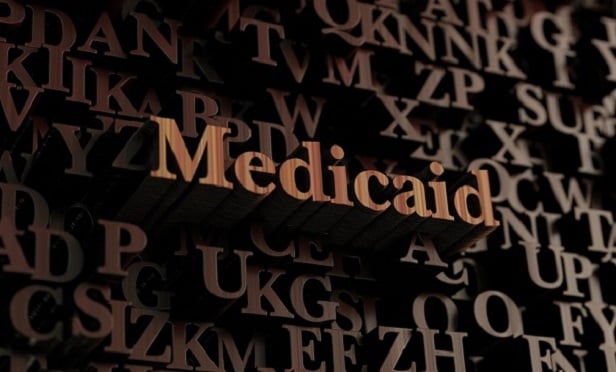 A recent study found that adult Medicaid enrollees were five times as likely to have a "usual source of care" than the uninsured. (Image: Shutterstock)
A recent study found that adult Medicaid enrollees were five times as likely to have a "usual source of care" than the uninsured. (Image: Shutterstock)
A study conducted by America's Health Insurance Plans finds that those with Medicaid coverage are better off than those with no health coverage at all.
That conclusion may seem obvious, but as the AHIP report acknowledges, a number of Medicaid critics in recent years have alleged that the public health program shows no evidence of benefiting enrollees.
Recommended For You
Although AHIP is obviously a supporter of traditional commercial health insurance, it also has an interest in preserving Medicaid since many states now offer Medicaid through subsidized private insurance plans.
The AHIP study, which analyzed data gathered by the Medical Expenditure Panel Survey from 2013-15, found that adult Medicaid enrollees were five times as likely to have a "usual source of care" than the uninsured. Kids on Medicaid were four times as likely as their uninsured counterparts.
Due to the fact that Medicaid typically reimburses doctors far less than private insurance or Medicare, many providers do not take Medicaid patients. However, the AHIP study concluded that Medicaid beneficiaries "appeared to have access to care and preventive services at levels similar to people who have commercial health coverage."
"The findings from this study refute outdated, less rigorous studies that question the value of Medicaid, and add to the growing number of recent studies that demonstrate the value of having insurance coverage generally, and Medicaid more specifically," concluded AHIP.
The results of the study are unlikely to quell criticism of Medicaid, at least in part because the AHIP analysis did not address questions that have been raised about whether the access to care provided by Medicaid actually makes its enrollees healthier.
For instance, a Gallup poll last year found that Medicaid enrollees were more likely to rate their health as poor than the uninsured. Of course, that result is just as much an indicator of who enrolls in Medicaid as the type of care the program provides. Healthy low-income people may be less likely to enroll in Medicaid than those who are dealing with serious health problems.
A 2013 analysis in Oregon found that a pre-Obamacare expansion of Medicaid in that state (beginning in 2008) did not appear to have improved a variety of health outcomes, including high blood pressure, cholesterol and glycated hemoglobin levels. Depression did drop, however.
However, as Medicaid supporters pointed out, the Oregon study also showed that the new Medicaid enrollees benefited from a number of things, including a major reduction in catastrophic health expenses. Their increased access to preventative care would also lead to better outcomes in the long-term, predicted liberal health policy analyst Ezra Klein at the time.
© Touchpoint Markets, All Rights Reserved. Request academic re-use from www.copyright.com. All other uses, submit a request to [email protected]. For more inforrmation visit Asset & Logo Licensing.






